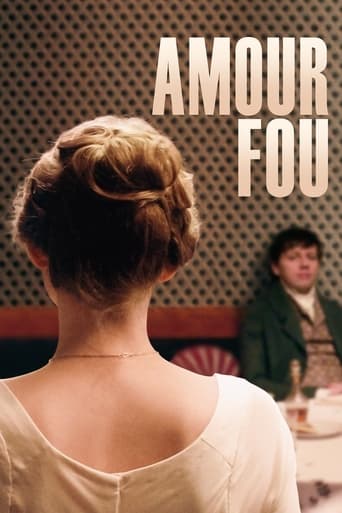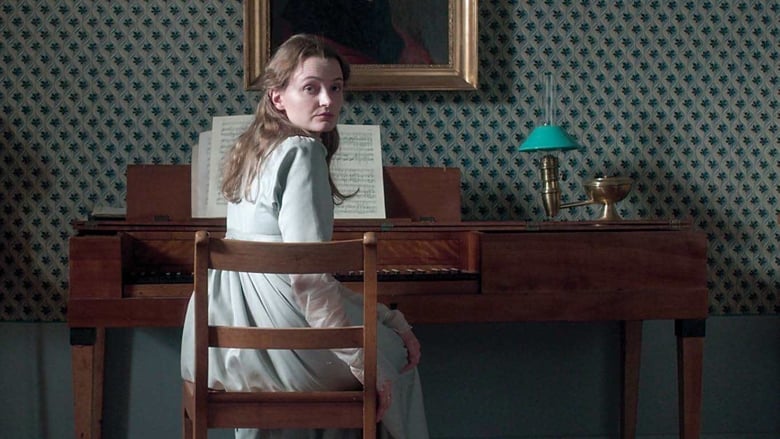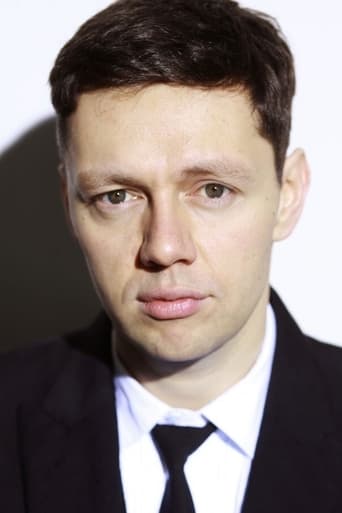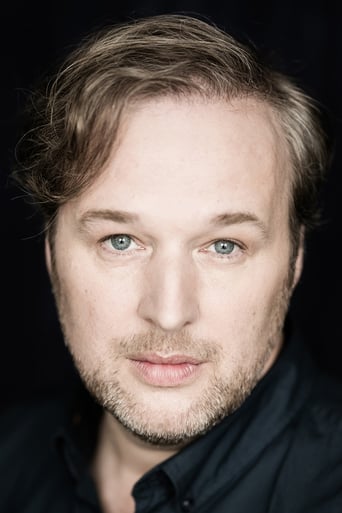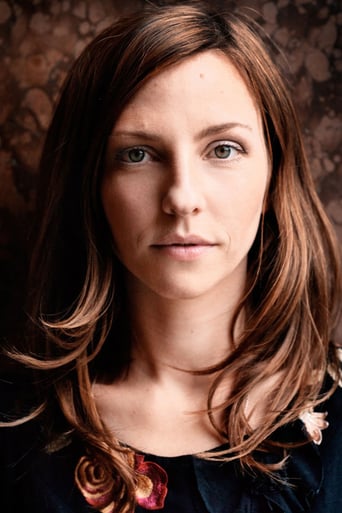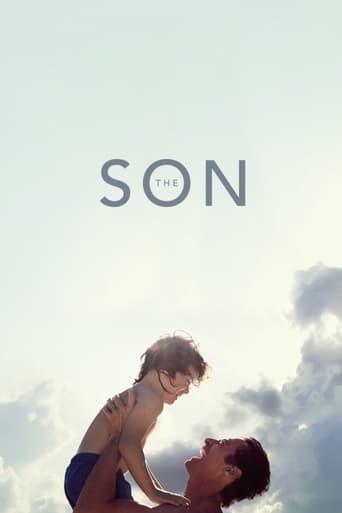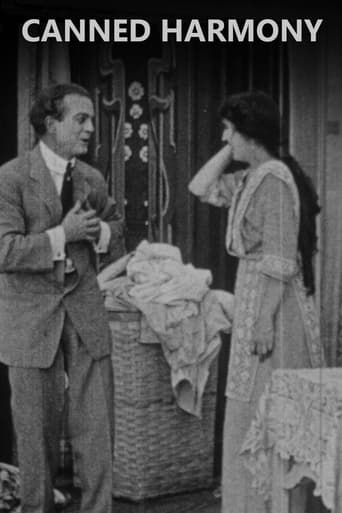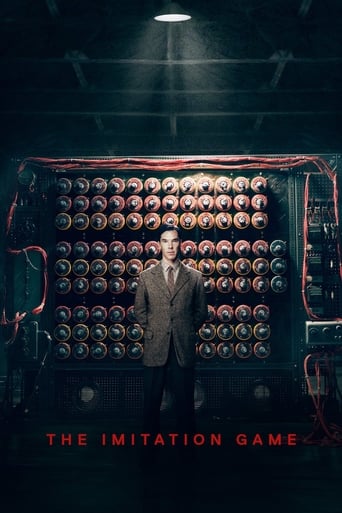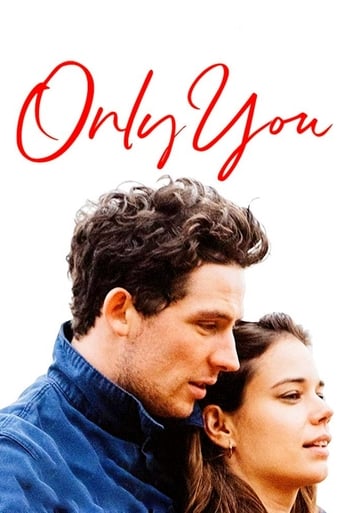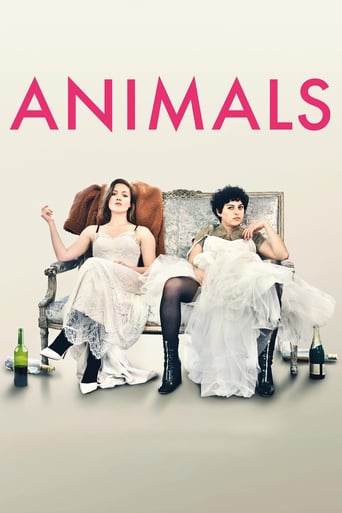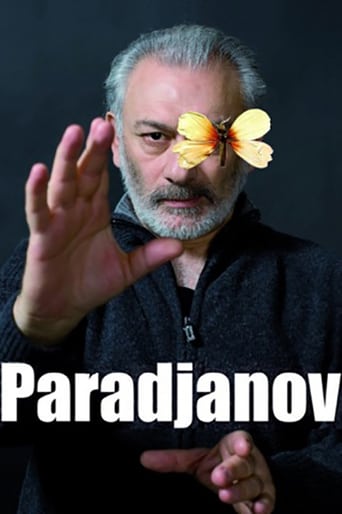Amour Fou (2014)
Heinrich wishes to conquer death through love, and when he meets Henriette, the wife of a business acquaintance, she expresses interest in a suicide pact when she learns she has a terminal illness.
Watch Trailer
Cast
Similar titles
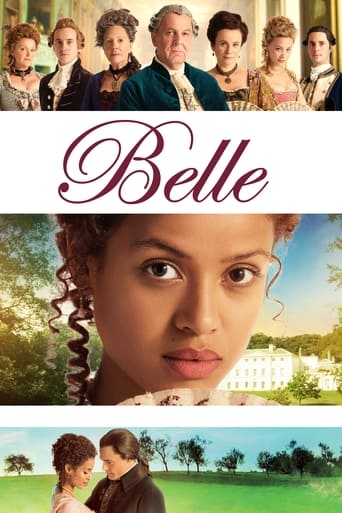
Reviews
Simply Perfect
If you like to be scared, if you like to laugh, and if you like to learn a thing or two at the movies, this absolutely cannot be missed.
This is a coming of age storyline that you've seen in one form or another for decades. It takes a truly unique voice to make yet another one worth watching.
Exactly the movie you think it is, but not the movie you want it to be.
Berlin, early 19th century, Romantic Era, a time when Goethe's writings were leading many young boys to mysteriously commit suicide across Germany, it here we meet a young poet Heinrich (Chrisitan Friedel). Heinrich claims, "that it is not the fear of death, but the fear of life which he cannot live with." The young morbid, obsessive Romantic wants to join what he sees the two tenants of Romanticism in life: the ultimate show of love through death (which he will manifest through a murder suicide). Amour Fou, Austrian director Jessica Hausner's follow-up to her successful look at dogma-less religious fervor, doubt and jealousy in her 2009 success Lourdes, is just as placidly composed and as narratively deliberate as its predecessor, and a brush of black-comedy underlies both. Heinrich, in love with his cousin Marie, wants her to join his suicide pact, but she denies him. Heinrich, forlorn at what he sees as his cousin's inconceivable refusal and distraught by his cousins' insensitivity to his sensibilities, yet seeming a bit like destiny he meets the married Henriette (Brit Schoenik). Heinrich holds her mystified, but when Heinrich proposes his suicide pact to her, it appears it will be another refusal, until Henriette finds that she is terminally ill. The back-and-forth between Heinrich who does not quite want to give up on killing himself and Marie but does not want to miss his chance with Henriette, and Heinrich selfishly wanting Henriette to want to die out of pure love and not just because of her possible terminal-illness, while all the while knowing that it is Marie he loves most of all, works wonders for the complexity of the film and the intertwining of relationships within the narrative.What makes Amour Fou standout among other films of it's like is the way in which Hausner, cinematographer Martin Gschlacht and production designer Katharina Woppermann capture the essence of this time in German history with a precise visual sense. Each frame is structured precisely—especially the interiors which are geometrically defined tableaux)—each sequence layered, some look as though they are tableaux vivant. Most of the scenes are witnessed through a detached camera that allows characters to move in and out of the distinctive picturesque shots or on the contrary allows them to stand and be examined statically from a slight distance, allowing the audience to pick up on minute (but important) details like facial gestures, mannerisms, etc. which builds tension within every scene, especially the scenes in which Heinrich's awkward presence looms like a bird of doom, perpetually out of place and easily mortified by the overlapping dialogue and the rhetoric it contains (where the audience can be clued in on the historic mindset of the Berlin bourgeoisie at this time). The musical piano numbers that are interspersed through the film, happening at each party, are mystifying, and are also filmed in the layered, tableaux form of most interior scenes. Amor Fou impresses in how it handles characters, changes points of view with such ease, and handles the subject matter quietly and evenhandedly. Instead of making the film a straightforward cliché of Romantic period artists, Hausner chooses to drive her characters by honest dialogue, somewhat realistic approaches to performances and does not try and hide or romanticize the selfish, ridiculous, egotistical tendencies and mindsets of the narrative's two main characters, nor their misunderstanding of what "love" truly means. Yet, the most commendable (outside the visual mastery of each scene) is the way Hausner examines her characters non-moralistically, never harshly judgmental, nor relishing in their life altering mistakes. The story itself and the time frame it is set in are based on real events, though Hausner does not paint herself into a corner attempting to stay true to the "facts," but the obvious social and historical elements of the story (post-French Revolution and the spreading of those ideas to Germany, the inevitable fall of the Prussian Empire, and the effect of Romanticism in culture and arts of the time) play well off of the scenarios and the metaphysical tribulations of the characters. Hausner's empathy shines through as she delivers a thoughtful character study, ultimately examining the power of the mind and willpower, while at times playing delightful games with the audience, forcing us to question and to quantify how large the difference is between mental illness and true love. Hausner tops the film off with a powerful and understated ending which stays true to the entire aesthetic of the film as a whole. After her past two deliberately paced and highly contained character studies of equal visual propensity with Lourdes (2009) and Amour Fou (2014) every film lover should be on the lookout for Jessica Hausner's next.
This is not history of what happened between Kleist the dramatist and story writer and Henriette Vogel, a married society lady who sang and played music. For one, it's presented as a love pact, I don't think he loves her, but he wants to die with someone who loves him. She admires his story The Marquis of O- .The Marquise of O is a transposition of Kleist's teasing 19th century novella about a chaste young widow ( who had sworn faithfulness to her late husband) suffering a pregnancy which she insists can only be the result of an immaculate conception.She is violated in sleep by a man she loves. Kleist's crisis, which is not presented in the film(which details Vogel's POV), is that having read Kant, he found it impossible to believe in some sort of divine fate or other worldly forces at work in humanity.We didn't know how we ought to live,nor the purpose of existence,nor what we are intended for,reason does not give us comprehension, human beings can never truly understand one another.The keystone of people's lives had been removed. Forget all that, Heinrich loves death more than life and seeks a soul mate to form a double suicide pact with.The movie centres on Henriette(Birte Schnoink), who seems a content wife and mother, obedient and submissive to her husband Frederich(Stephan Grossman), caring for their one daughter Pauline. With a maid Dorte she keeps house.Heinrich(Christian Friedel) is a visiting poet and friend,who attends the family's musical soirées.He informs her he's been rejected not in love but in his lover joining him in death.There is a stultifying quality to the furniture, wall paper, dead flowers, profusion of dogs ,paintings on the wall and the couple's separate beds. As in her film Lourdes,there is an oddness to the material and the awkward shooting of the scenes in static mode, people posed either full-on or sideways,each scene framed like a painting. The performances seem in a trance, a physical prison, from which Henriette can escape only through illness or death. Friedel portrays Kleist with an arch formality and stiffness, hunched over making his absurd requests. Hausner bleeds dry the language of romantic love,injecting humour. Henriette finds out too late her illness is not life-threatening. She agrees to a suicide pact when she thinks her disorder is incurable.Hausner employs a deadpan humour as Frederich employs methods to investigate her illness like hypnosis, or there are interminable discussions about the new taxes and the dangers of democracy, to anchor it in its specific time(1811). Heinrich feels unsuited to bourgeois life. He also feels uncomfortable with Henriette's change of heart as she may be doing it for all the wrong reasons. Herr Vogel seems to assist the soul mates to be together more. The regimentation of their lives is captured by the rigid,tableaux-like cinematography, with pastel colouration. Henriette submits to a weasel of a man who wants her only as a sounding board to his own life- philosophy.The film succeeds as a farce set up with authentic period detail with references to the effects of the French Revolution, creeping under your skin like Heinrich does under Henriette's.The climatic death scene is blunt,sad and horrifying, but works.It leaves a shadow in your mind long after.
"Would you care to die with me?" It's a question you'd perhaps expect to hear being uttered from one of Hollywood's more overused basement sets, rather than that of a stately German home during dinner. Austrian writer/ director Jessica Hausner's sixth feature is a study of death as an act of love in the midst of a Prussian Empire on the cusp of French-inspired political and social reformation. Set between 1810 and 1811, the film follows a young romantic poet, Heimlich (Christian Friedel), as he seeks out a partner for what he believes is a perfect act of love and the solution to his melancholic woes; a shared death. After his cousin spurns his fatalistic advances, Heimlich turns his attentions to Henriette (Birte Schnoeik), the wife of a business associate and a woman diagnosed with a terminal condition. What transpires is a drawn out courtship, with an underlying will-they-won't- they murder-suicide pact theme.Far from the dashing romantic image a period poet might evoke, Friedel's Heimlich moves awkwardly through the picture as a skulking, slightly greasy weirdo. He's the Seventeenth Century love child of Max Schrek's Nosferatu and How I Met Your Mother's Ted Mosby, desperately searching for his elusive dream girl. Pursuing his prospective suitors and explaining his desire for this mutual suicide with all the cold, Germanic logic of a Kraftwerk track, "First I will shoot you and then myself". Still in Hausner's depiction of upper-middle class Prussian life, it's perhaps not inconceivable that his offer is met with more of a curious enthusiasm than it is with laughter and a one-way trip to the gallows.There's a visually cruel symmetry to the set design. The rooms at a glance are large and grand, but their interiors sparse and utilitarian. Carpets, drapes and walls are covered with maddeningly geometric, repetitive patterns and each static shot looks like the kind of uninspired Seventeenth Century painting that one might find adorning a Twentieth Century biscuit tin. The colour palate is oddly muted. The characters move in precise, robotic motions, which seem designed to minimise the energy spent. Indeed, the stately group dance in the third act seems to ironically be the least choreographed in the entire film. It's as if this world, one where the sole form of entertainment is gathering around a piano to listen to a child hammer out macabre songs, would be so repressively dull as to make the offer of a late afternoon fatality a tantalising thought. Indeed, while planning their final moments, Henriette seems to have the sheepish smile of a young woman who's been flaunting her ankles all over Berlin. That's almost all the facial emotion that we see throughout the entire ninety-six minutes.Ultimately, it's not all that easy to ascertain what Hausner's sterile slice of period drama is trying to convey. It could be that death, like social change is inevitable, so we might as well enjoy it, rather than hide from it in denial. However, it's a little hard to walk away thinking that the past would have been anything but a torturous purgatory, of which death would have been the kindest release. Perhaps mercifully, the viewers' time there is, in cinematic terms, rather brief.
I saw this film at the Film Fest Ghent 2014. What I liked most is the social commentary that was intertwined throughout the story. Nice view on the issues of that era mixed with social/salon behavior of those days mixed with how houses internally looked in those days. Especially the discussions about taxes and social order were very informative, in showing how the higher classes thought at that time, while bringing forward a series of arguments why they considered democracy a bad idea. Also, they had very strong opinions why paying taxes was something for the lower classes only, pending a law proposal at that time to extend taxation to everyone irregardless of rank or title.I'm usually not fond of costume drama's. This time we were lucky to have aforementioned compensations that let me easily watch the slowly developing drama without being distracted by the historic attributes. Of course, what these people motivated to act how they acted, escapes our (at least: my) understanding. But I'm a certified nerd, and does not understand anything where romantic behavior is concerned. And, as a totally different matter, that Heinrich and Henrietta can undertake two journeys without any form of chaperoning, escapes me too.Acting is superb, to such an extent that we gradually get to understand all major protagonists better and better in the course of the movie. That Heinrich halfway tries again to convince Marie into the suicide pact, makes clear that he actually preferred her all the time (rendering Henrietta 2nd choice). Collective suicide or not, this shifting preference makes the finale still more tragic as it already would be without that complication.
